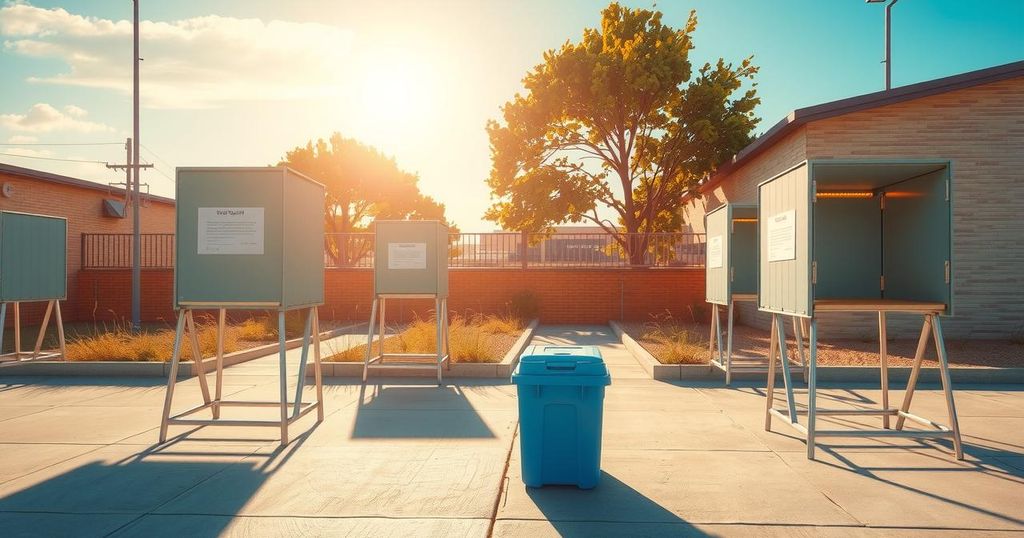Ghana’s Elections: A Crucial Test Amid Economic Turmoil

Ghana’s upcoming elections occur against a backdrop of severe economic crisis, with 82% of citizens believing the country is on the wrong track. The contest is primarily between Vice President Mahamudu Bawumia (NPP) and former President John Dramani Mahama (NDC). The economy, characterized by high inflation and illegal mining issues, is the central focus, as voters seek effective solutions amidst a backdrop of discontent and uncertainty.
Ghana is set to conduct general elections on Saturday, a pivotal test for its democracy amidst the worst economic turmoil the country has faced in a generation. Although approximately 18.7 million people are registered to vote, the two main presidential candidates are seen as offering limited prospects for change, given the nation’s soaring inflation and lack of jobs. Once a beacon of democratic stability in West Africa, Ghana’s recent economic struggles have tarnished its reputation.
A recent poll by Afrobarometer indicates that 82% of Ghanaians believe the country is heading in the wrong direction. The election features 12 candidates, but it has largely become a two-way contest between Vice President Mahamudu Bawumia of the New Patriotic Party (NPP) and former President John Dramani Mahama of the National Democratic Congress (NDC). Both candidates face criticism as voters perceive little difference between their economic programs.
The new parliament will consist of 276 members, with the NPP and NDC each holding 137 seats in the 275-member assembly until an additional constituency votes. In their closing rallies, Bawumia committed to stabilizing the economy based on current policies, while Mahama promised a broad “reset” of governance and economic systems to revive national pride.
Despite an invigorating atmosphere marked by vibrant political rallies and public displays of enthusiasm, underlying worries about the economy persist. Ghana defaulted on most foreign debt last year, resulting in skyrocketing prices for fuel and necessities, with inflation peaking at 54%. Insufficient improvements are felt by the public, indicating the gravity of the situation.
Illegal gold mining, referred to locally as galamsey, has emerged as another pressing issue in the elections. As the leading gold producer in Africa, Ghana faces environmental degradation due to illegal mining driven by high unemployment rates. This issue has intensified protests and led to widespread discontent with the government’s handling of the economy.
The upcoming elections in Ghana represent a critical juncture for the nation’s democracy, exacerbated by severe economic challenges. With both major candidates offering limited differentiation in their approaches to the economy, voters are concerned about the crisis manifesting in high inflation and unemployment. The rise of illegal gold mining further complicates the economic landscape, prompting demands for decisive leadership to restore stability and trust in governance.
Original Source: apnews.com







